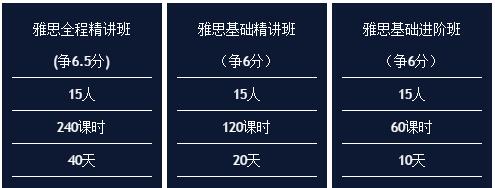剑桥雅思8口语Test1Part3范文
2017/4/6 18:26:33来源:新航道作者:新航道
摘要:剑桥雅思系列是同学们在备考中最好的教材之一,所以同学们在备考的时候是要准备一些这方面的资料的。新航道雅思 小编今天为大家带来关于剑桥雅思8口语Test1Part3范文,希望可以帮助广大雅思考生轻松备考雅思。更多雅思备考信息,请关注新航道上海雅思。
剑桥雅思系列是同学们在备考中最好的教材之一,所以同学们在备考的时候是要准备一些这方面的资料的。新航道雅思 小编今天为大家带来关于剑桥雅思8口语Test1Part3范文,希望可以帮助广大雅思考生轻松备考雅思。更多雅思备考信息,请关注新航道上海雅思。
剑8Test1Part3雅思口语模板-organization
1. What kinds of organization want to find out about people’s opinions?
很多组织会在乎顾客的想法和员工的想法,当然其中主要是企业,因为顾客的选择和员工的去
留直接关系他们的兴衰存亡。
2. Do you think that questionnaires or surveys are good ways of finding out people’s opinions?
可以认为好,也可以认为不好,考生可以选择任意一方面作答。好可能因为成本低廉,不好也
可能因为效果不理想或结果不具有借鉴性或代表性。
3. What reasons might people have for not wanting to give their opinions?
当自己忙着去做某事时被人打扰肯定不会乐意,所以“忙”、“有事”常常是大家最常用的借口。 有时也可能是因为涉及隐私,或涉及敏感内容而不便透露。
4. Do you think it would be a good idea for schools to ask students their opinions about lessons?
考生完全可以说自己没有思路,因为对于这个问题本身,大量的教育专家就有很多不同的观点, 有些观点甚至可能完全相反,大家莫衷一是。当然,这个做法本身有优点,也有缺点,考生可
以在这里简单概述,在之后的问题中再详细作答。
5. What would the advantages for schools be if they asked students their opinions?
优点当然是可以为学生按需设计课程,学生想学什么就可以学什么,甚至可以挑老师,学生学
习起来就更加有主动性和积极性,同时学校也可以更好地为学生服务,满足学生的多项需求。
6. Would there be any disadvantages in asking students’ opinions?
缺点是学生可能会有不切实际的意见、想法,但是学校既然征求意见却不能实施,反而会导致
学生的不满情绪。同时,如果学校积极回应学生意见的话,可能又面临大幅变革的局面,不仅
可能会有较高的改革成本,也可能会产生难以预计的结果。
名师点题剑桥雅思8口语
考生可在回答中使用的实用词汇
1. What kinds of organization want to find out about people’s opinions?
customer, client, staff, enterprise, care about, be concerned about, be interested in, feedback, improve, renovate.
2. Do you think that questionnaires or surveys are good ways of finding out people’s opinions?
Yes: low cost, cheap, affordable, easy to plan/operate.?No: ineffective, not representative, false information, slow response, difficult to digitize/process.
3. What reasons might people have for not wanting to give their opinions?
busy, occupies, none of someone’s business, sensitive topic, too personal, too private, having no idea, being clueless.
4. Do you think it would be a good idea for schools to ask students their opinions about lessons?
school administrator, board, management team, solicit opinions, construct questionnaire/ interview/survey, developmental psychologists, educationists, contradictory views.
5. What would the advantages for schools be if they asked students their opinions?
construct course according to needs, promote active learning, address students’ needs, meet students’ demands.
6. Would there be any disadvantages in asking students’ opinions?
unrealistic thoughts, hard to put into operation, inoperable, reform, overhaul, high cost, unexpected consequence, lack of foresight.
名师点题剑桥雅思8口语
参考回答(每个问题两个回答)
1. What kinds of organization want to find out about people’s opinions?
Well, I guess a lot of organizations would do, especially those non-governmental enterprises. I believe they would pay more attention to what their customers and staffs think, because their choices and decisions directly affect the survival and demise of the company.
It’s hard to say what kinds of organization care to find out about people’s opinions, but I do know what kinds of organization don’t care: the governmental organizations at various levels of an authoritarian regime, because they don’t care about what you think, they only demand blind submission.
2. Do you think that questionnaires or surveys are good ways of finding out people’s opinions?
Yes, I do think so, because the cost of doing questionnaires or surveys is very low and they are easy to operate. The surveyors are easy to train. Samples can be easily collected. What else could you ask when you have cheap source of data and easy-to-operate scheme? So I’m totally for questionnaires or surveys.
No, I don’t think data collected through questionnaires or surveys can truly reflect people’s thinking. Look, would you happily give out what you think when people solicit information by bugging you. So I never trust questionnaires or surveys.
3. What reasons might people have for not wanting to give their opinions?
Well, I don’t know about others. But I always use“busy”or“I’m occupied at the moment”as excuses to slip off. I guess there must be a lot of others like me.
I guess some people would feel reluctant if asked to give their personal information or asked to give opinions on sensitive issues. Of course nobody wants any trouble.
4. Do you think it would be a good idea for schools to ask students their opinions about lessons?
I’m sorry. I just have no idea about this, because this topic itself has been disputed by a lot of experts and educationists. So far no consensus has been made. Some of their ideas even contradict each other. So I don’t really know.
Well, yes and no. Asking students their opinions is a great leap forward toward education reformation. But it has both advantages and disadvantages, all of which have to be thought through and carefully measured before any major steps are taken.
5. What would the advantages for schools be if they asked students their opinions?
One of the major advantages is that schools can customize their courses according to students’ needs that students can freely select teachers and textbooks. By doing so, it is believed that students will be more active or motivated to engage themselves in learning.
The most obvious advantage is that schools can get not only first-hand but also timely feedback from students about the education service they provide and therefore will be able to make adjustment to better meet students’ needs. Apart from this, there must be many other advantages, but this is the most obvious one I can think of now at this moment.
6. Would there be any disadvantages in asking students’ opinions?
Well, once schools start asking students’ opinions, all kinds of ideas will start to pour in, realistic and unrealistic, constructive and unconstructive, even destructive. It’ll only make schools look bad if schools don’t make any response to students’ suggestions. But what can you do if all that students ask is less work, more play. I mean, children are just not old, mature enough to get involved in this. If schools want to reform, they should rely on their own experiences and wisdom.
What disadvantages could there possibly be? I don’t believe there are any disadvantages. We should regularly consult students’ opinions on how we should do better about education. After all, we as“cook”should“cater to”the taste of our guests, in this case, our students.
以上就是小编为大家带来关于《剑桥雅思8真题口语》供大家阅读参考,新航道雅思资料频道将第一时间为考生发布最全、最新、最专业的雅思资讯及雅思考试资料及机经.
更多雅思培训的相关信息,请关注上海新航道雅思频道 。
如需下载雅思相关资料请与上海新航道雅思页面 的“在线客服”联系。
或在下方注册表格内,请提交“姓名+电话+邮箱”,我们将于24小时内发送给你!
免费获取资料
热报课程
- 雅思课程
| 班级名称 | 班号 | 开课时间 | 人数 | 学费 | 报名 |
|---|
免责声明
1、如转载本网原创文章,情表明出处
2、本网转载媒体稿件旨在传播更多有益信息,并不代表同意该观点,本网不承担稿件侵权行为的连带责任;
3、如本网转载稿、资料分享涉及版权等问题,请作者见稿后速与新航道联系(电话:021-64380066),我们会第一时间删除。
全真模拟测试
制作:每每









